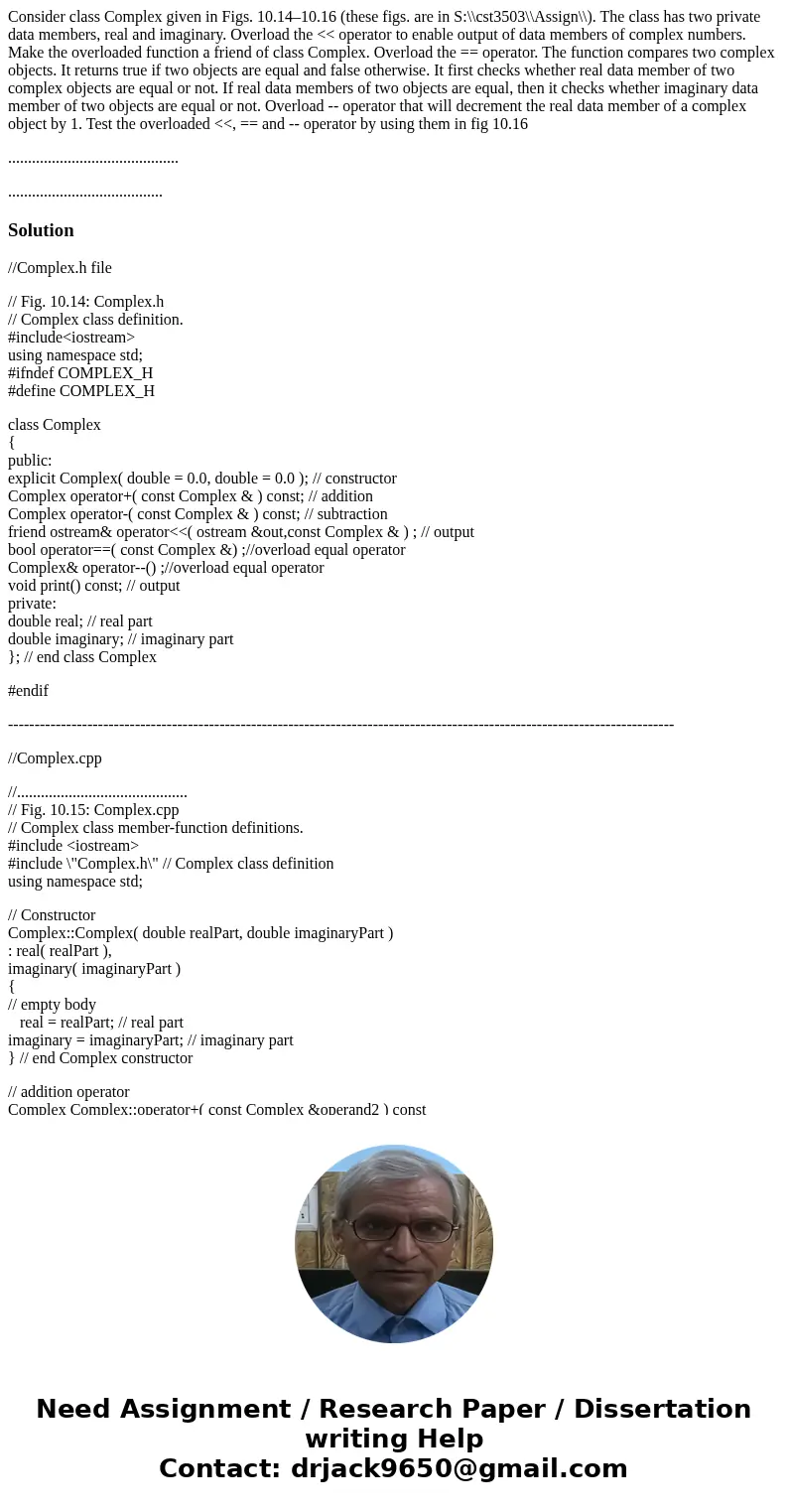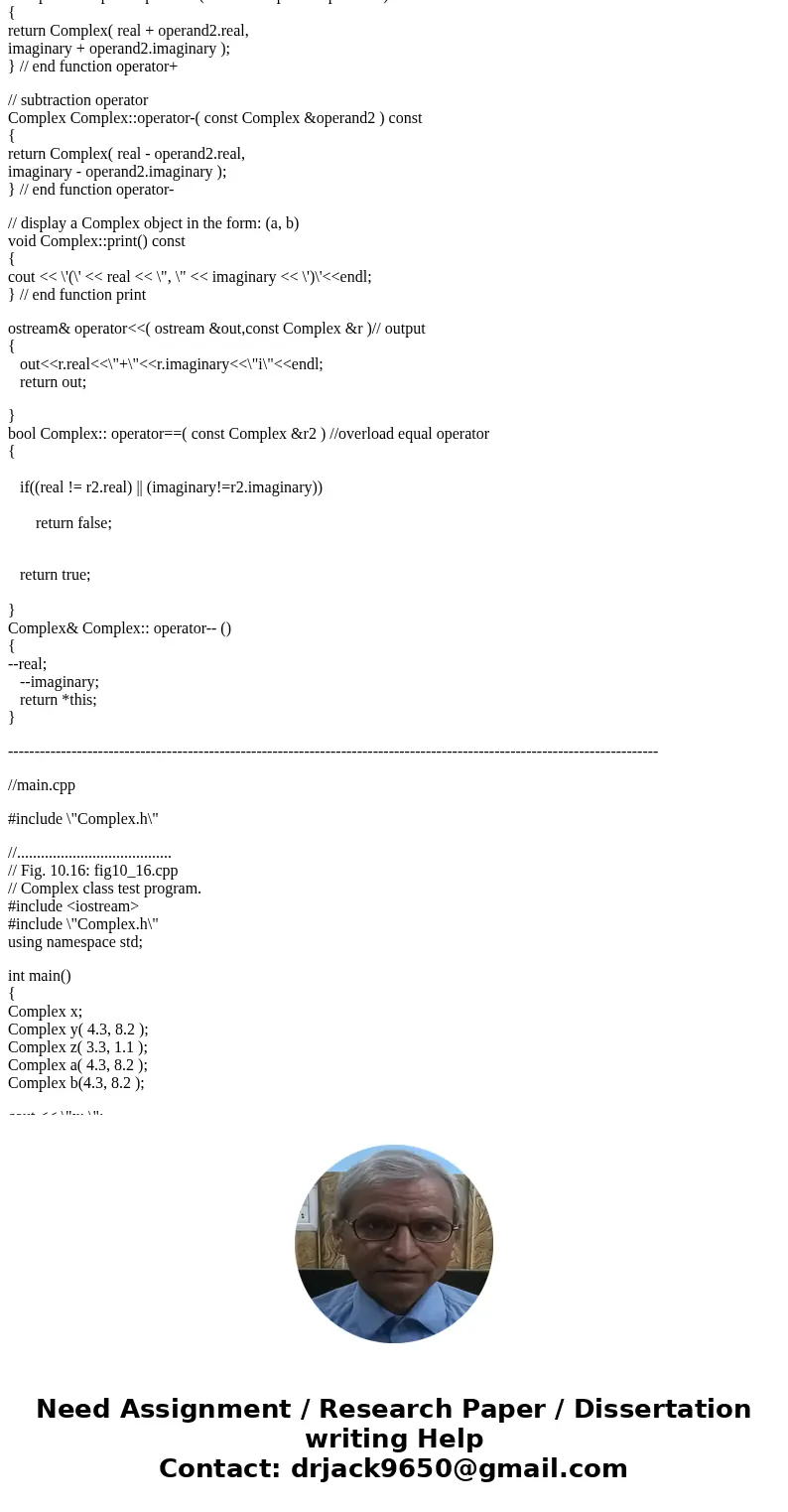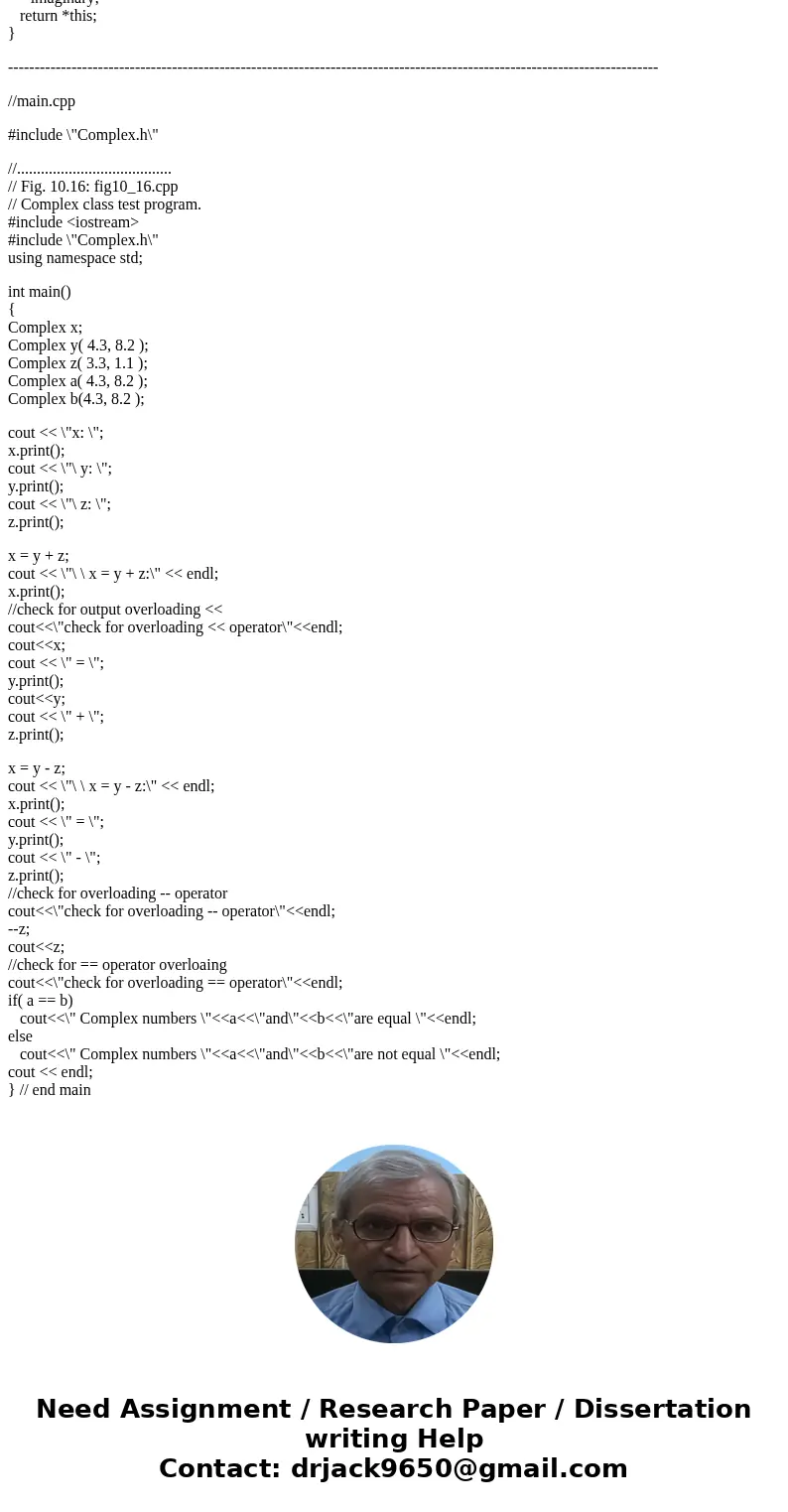Consider class Complex given in Figs 10141016 these figs are
Consider class Complex given in Figs. 10.14–10.16 (these figs. are in S:\\cst3503\\Assign\\). The class has two private data members, real and imaginary. Overload the << operator to enable output of data members of complex numbers. Make the overloaded function a friend of class Complex. Overload the == operator. The function compares two complex objects. It returns true if two objects are equal and false otherwise. It first checks whether real data member of two complex objects are equal or not. If real data members of two objects are equal, then it checks whether imaginary data member of two objects are equal or not. Overload -- operator that will decrement the real data member of a complex object by 1. Test the overloaded <<, == and -- operator by using them in fig 10.16
...........................................
.......................................
Solution
//Complex.h file
// Fig. 10.14: Complex.h
// Complex class definition.
#include<iostream>
using namespace std;
#ifndef COMPLEX_H
#define COMPLEX_H
class Complex
{
public:
explicit Complex( double = 0.0, double = 0.0 ); // constructor
Complex operator+( const Complex & ) const; // addition
Complex operator-( const Complex & ) const; // subtraction
friend ostream& operator<<( ostream &out,const Complex & ) ; // output
bool operator==( const Complex &) ;//overload equal operator
Complex& operator--() ;//overload equal operator
void print() const; // output
private:
double real; // real part
double imaginary; // imaginary part
}; // end class Complex
#endif
------------------------------------------------------------------------------------------------------------------------------
//Complex.cpp
//...........................................
// Fig. 10.15: Complex.cpp
// Complex class member-function definitions.
#include <iostream>
#include \"Complex.h\" // Complex class definition
using namespace std;
// Constructor
Complex::Complex( double realPart, double imaginaryPart )
: real( realPart ),
imaginary( imaginaryPart )
{
// empty body
real = realPart; // real part
imaginary = imaginaryPart; // imaginary part
} // end Complex constructor
// addition operator
Complex Complex::operator+( const Complex &operand2 ) const
{
return Complex( real + operand2.real,
imaginary + operand2.imaginary );
} // end function operator+
// subtraction operator
Complex Complex::operator-( const Complex &operand2 ) const
{
return Complex( real - operand2.real,
imaginary - operand2.imaginary );
} // end function operator-
// display a Complex object in the form: (a, b)
void Complex::print() const
{
cout << \'(\' << real << \", \" << imaginary << \')\'<<endl;
} // end function print
ostream& operator<<( ostream &out,const Complex &r )// output
{
out<<r.real<<\"+\"<<r.imaginary<<\"i\"<<endl;
return out;
}
bool Complex:: operator==( const Complex &r2 ) //overload equal operator
{
if((real != r2.real) || (imaginary!=r2.imaginary))
return false;
return true;
}
Complex& Complex:: operator-- ()
{
--real;
--imaginary;
return *this;
}
---------------------------------------------------------------------------------------------------------------------------
//main.cpp
#include \"Complex.h\"
//.......................................
// Fig. 10.16: fig10_16.cpp
// Complex class test program.
#include <iostream>
#include \"Complex.h\"
using namespace std;
int main()
{
Complex x;
Complex y( 4.3, 8.2 );
Complex z( 3.3, 1.1 );
Complex a( 4.3, 8.2 );
Complex b(4.3, 8.2 );
cout << \"x: \";
x.print();
cout << \"\ y: \";
y.print();
cout << \"\ z: \";
z.print();
x = y + z;
cout << \"\ \ x = y + z:\" << endl;
x.print();
//check for output overloading <<
cout<<\"check for overloading << operator\"<<endl;
cout<<x;
cout << \" = \";
y.print();
cout<<y;
cout << \" + \";
z.print();
x = y - z;
cout << \"\ \ x = y - z:\" << endl;
x.print();
cout << \" = \";
y.print();
cout << \" - \";
z.print();
//check for overloading -- operator
cout<<\"check for overloading -- operator\"<<endl;
--z;
cout<<z;
//check for == operator overloaing
cout<<\"check for overloading == operator\"<<endl;
if( a == b)
cout<<\" Complex numbers \"<<a<<\"and\"<<b<<\"are equal \"<<endl;
else
cout<<\" Complex numbers \"<<a<<\"and\"<<b<<\"are not equal \"<<endl;
cout << endl;
} // end main



 Homework Sourse
Homework Sourse